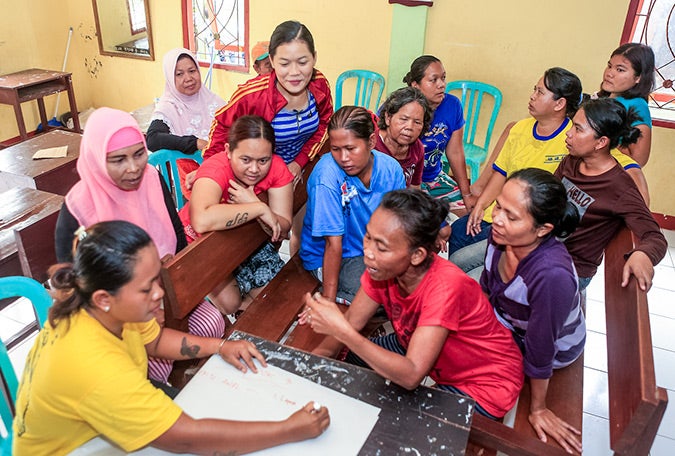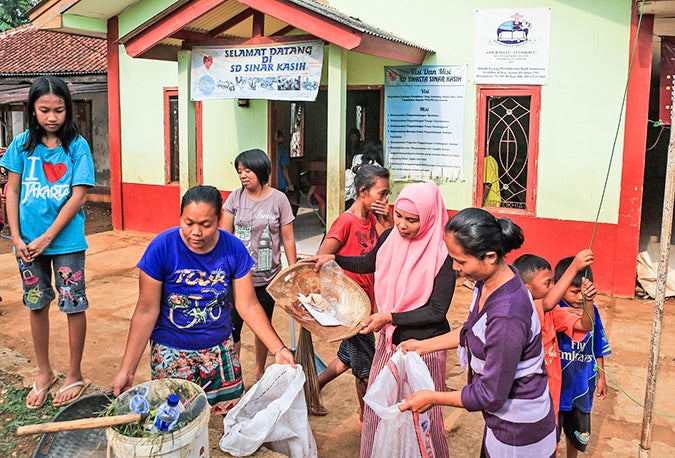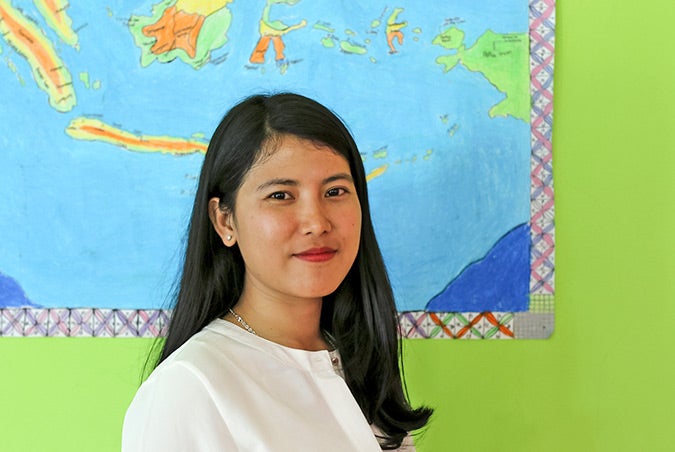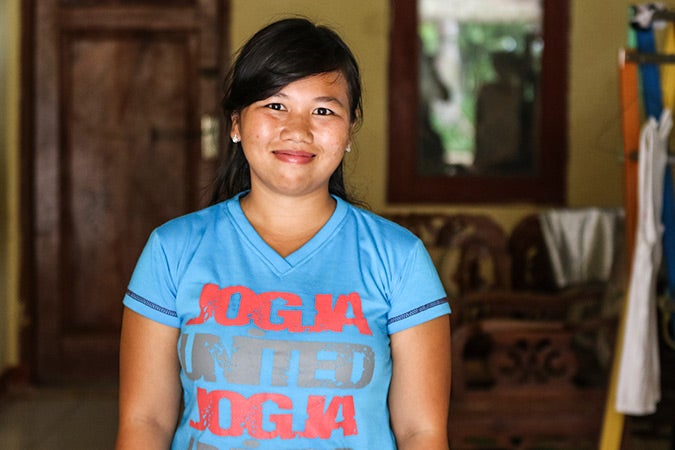Building peace while empowering women on Indonesia's Java Island
Date:
Author: Gaelle Demolis
Nglinggi, Indonesia — The group of 20 women from this farming community in Klaten, Central Java gathered on a stage and pledged before their neighbors and friends: "We, Indonesian women, are determined to live in love and peace with all elements of society regardless of one's ethnicity, religion, and faith."

With this pledge on 01 November, and the signing of a peaceful village inscription by the Regent of Klaten, Nglinggi became the first community in Indonesia to be declared a model Kampung Damai, or "peace village."
The Wahid Foundation, an NGO, is working to create peaceful communities is 30 multi-religious villages of Java. The 01 April 2017 to 31 March 2018 project is funded by UN Women. The project facilitates group discussions within the community on what it takes to become a peaceful village and encourages resolutions of conflicts that arise.
Community members start by making peace within the family, then agree on guidelines for the community: People of various faiths should cooperate to solve problems and set community policies; neighbors should jointly maintain the community such as by cleaning and fixing common buildings; and women must be economically and socially empowered.


"We see women as potential bearers of peace in the community," said Yenni Wahid, Director of the Wahid Foundation. "So we want to empower them to find their voice. We hope that by empowering them, it will change the dynamics in their communities."
The peace village is part of UN Women's Empowered Women, Peaceful Communities programme, which works in Indonesia and Bangladesh to economically empower women through small business workshops and loans, and to support peaceful solutions to growing intolerance and violent extremism. The idea is that empowering women creates stronger, more peaceful communities that in turn help prevent violent extremism. The Government of Japan funds the project.
On Java, the Wahid Foundation facilitates women's microfinance groups that meet weekly to learn about financial management and how to develop their small businesses. UN Women provides the groups with capital for loans. Through these groups, women of diverse religious and social backgrounds learn to support each other.
Members of the microfinance group in Pondak Cina village in West Java point to the benefits for their own businesses as well as for the community.
"The Wahid Foundation programme developed this idea of peace and tolerance among the village community," said Meyli Aryani, a teacher and shop owner. "Before they came, everyone was thinking that their religion was the only truth. Now we count on each other, we appreciate each other, and there is solidarity among the village members."
"My mother is Christian, my stepfather is Muslim, I am Christian, and my brother is Muslim," she said. "The village is an example of tolerance and mutual respect. Muslims join Christian for Christmas. During the Chinese New Year, we go to our Confucian neighbor's house. We all communicate well with each other. It is the key to having a peaceful village."


"I hope to see the small businesses grow and that my village will be an example for other villages," she said." I want the voice from the grassroots level to be heard."
Nani, a 27-year-old owner of a lamp business, received training from the project on conflict mediation as well as financial management. She said she applies the concepts at home, in her relationships with her husband and her two children.
"The programme is very useful for my business," she said. "With peace in the village, we can expand our businesses, get wider recognition and get to know more people. Through this group we are getting to know each other better and build trust among the different religions and communities in the village."